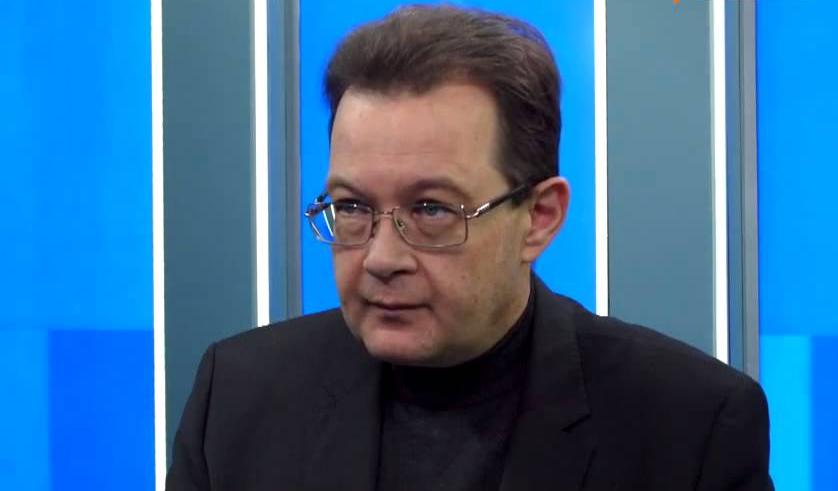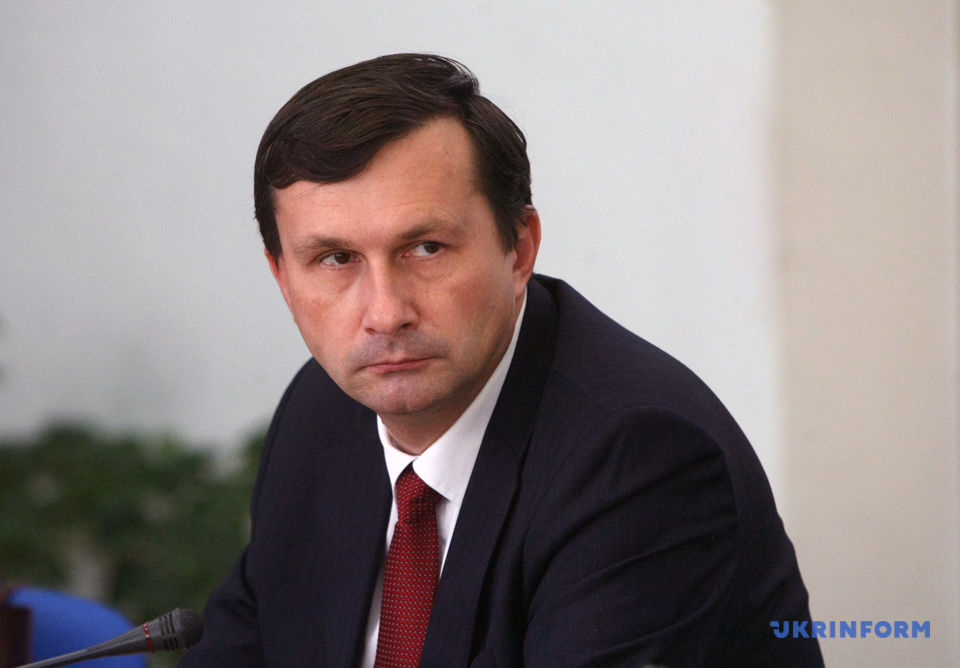
Ukraine's inflation drops below 10% for first time in five years
The growth of consumer prices in Ukraine in 2018 amounted to 9.8% (this figure reached almost 14% in 2017), the State Statistics Service said. So, we have a little more than 9% set in the state budget for 2018... "However, given the number of risks that the domestic economy had to overcome last year, the figure is quite good," experts say. Moreover, despite negative forecasts (in particular, the National Bank of Ukraine predicted in October that inflation will grow to 10.1%), inflation indicators fell steadily at the end of the year - 1.9% in September, 1.7% in October, 1.4% in November and 0.8% in December.
"The relative success of 2018 was achieved, first and foremost, by the rather tight policy of the National Bank that actively used inflation targeting mechanisms," said Oleh Pendzyn, the executive director of the Economic Discussion Club. "The regulator seriously 'squeezed' the money supply, approving a high refinancing rate. That is, money has risen in price, which, on the one hand, reduced the possibility of lending to the economy, but, on the other hand, led to a slowdown in inflation. The policy of stabilizing the exchange rate also proved effective. After all, at the beginning of the year the hryvnia was even weaker than at the end. This minimized the negative impact on the inflation rates of the value of imported goods," he added.

"In 2018, the country actively implemented the policy of 'squeezing' aggregate demand, which helped reduce the flow of funds to the market," said Yaroslav Zhalilo, president of the Center for Anti-Crisis Studies. "At the same time, the artificial decline in purchasing power slowed the rise in prices for non-essential goods. This had a positive effect on the inflation rate, but at the same time became a brake on economic development," the expert said.
At the same time, experts pay attention to the fact that inflation figures in 2018 were almost not affected by increased gas prices for households. These are so to say "postponed inflationary risks" in 2019.
What hit the pockets of Ukrainian the most?
According to the State Statistics Service, products in Ukraine rose in price on average by 8.1% last year. The biggest rise in prices was recorded in prices for vegetables (27.8%), bread (21.5%), meat (9.4%), and milk (9.2%). At the same time, there was a drop in prices for fruit, eggs and sugar (by 17%, 9.5% and 9.3% respectively).
Prices for alcoholic beverages and tobacco products grew by 17.9%, clothing and footwear by 2%. Housing, water, electricity, gas and other fuels rose in price by 10.6%. The average cost of medicines and medical services increased by 9%, transport services by 13%, and communications by 15%. The cost of home appliances rose by 6.8%.
"We witnessed the multi-vector impact of individual commodity groups on the formation of a general index of inflation," Pendzyn said, commenting on statistical data. At the same time, he drew attention to the fact that socially significant food products and housing and utility services rose in price most significantly. That is, those most affected by inflation were representatives of the most vulnerable groups of the population, who spent the lion's share of their funds on food and housing maintenance.
"These indicators increase the level of so-called 'feeling of inflation,' which, in turn, influences 'social well-being,' and form inflation expectations. That can also have a negative effect on the indicators of 2019," Zhalilo said.

Year 2019: "postponed" last year's risks and new challenges
So, the task for 2019 is to maintain positive trends that added optimism to Ukrainian government officials and experts in the past year. Moreover, the IMF has recently unveiled more than an optimistic inflation forecast for 2019 in Ukraine. This figure, according to IMF analysts, will be 7% by the end of the year. In the first quarter of 2020, it will enter the target range defined by the National Bank of Ukraine - 5% ± one percent. According to IMF recommendations, maintaining tight monetary policy and slowing domestic demand will contribute to this. But will it be possible to avoid the influence of the so-called "election year" factor? The question is still rhetorical...
"Inflationary challenges are already serious. This is an increase in the cost of housing and utility services (from 17% to 24%) from January 1. The year 2019 will also witness the main 'burden' of last year's rise in prices for natural gas for households. In addition, according to a memorandum on cooperation between Ukraine and the IMF , we expect another 15 percent increase in the cost of natural gas in May and, as a result, an increase in the cost of housing and utility tariffs by at least 10%," Pendzyn said.
Experts also recall that this year there will be another increase in the minimum wage, as well as an increase in the pensions of some citizens and the recalculation (indexation) of payments to most retirees in March. All this, according to calculations, will "add" 3-4 percentage points to inflation.
"Therefore, I do not believe in 7% inflation at the end of 2019," Pendzyn said, adding that "the chances of keeping this figure at the level of 8-9% exist, under the condition of even tighter monetary policy of the National Bank, in particular, at least another increase in the discount rate."
Zhalilo, in turn, expressed doubt that Ukrainians will be able to avoid "electoral temptations."
"It will hardly be possible to refrain from the policy of increasing the income of the population in the context of upcoming presidential and especially parliamentary elections (because the Verkhovna Rada has more influence on such decisions). I think that even if the NBU keeps the restrictive nature of monetary policy, the increase in pressure on the consumer market will have a very negative effect on the pace of inflation," he said.
At the same time, experts hope that the "election factor" will not be decisive and the country will manage to avoid the implementation of the most dangerous populist slogans for the country's economy - both before and after the election campaign.
Vladyslav Obukh, Kyiv




